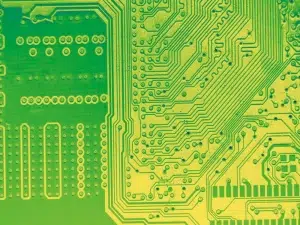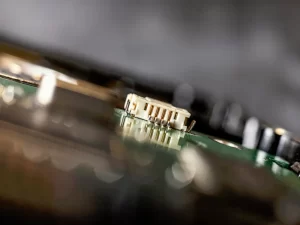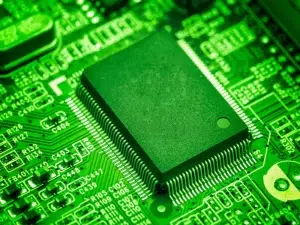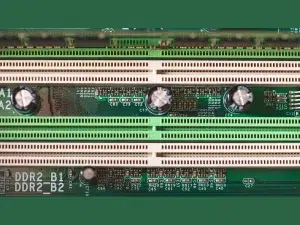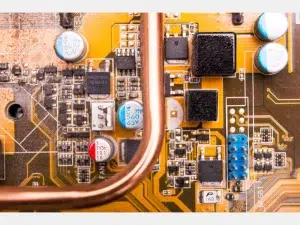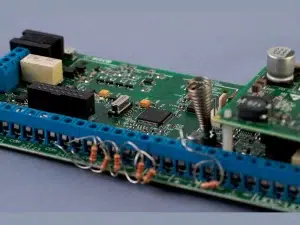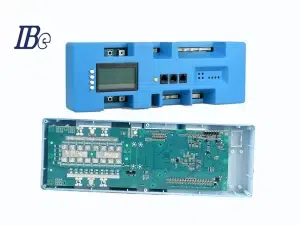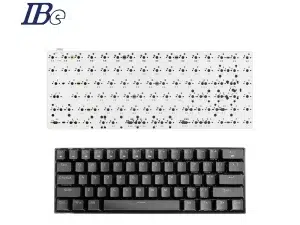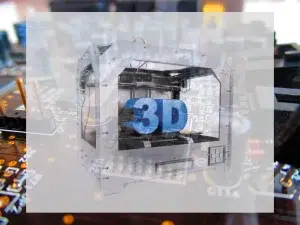In the manufacturing process of modern electronic devices, ceramic circuit boards play a very important role. The wiring and component mounting on the ceramic circuit board are directly related to the performance and reliability of the equipment.
Ceramic substrates are increasingly being used in demanding electronic devices due to their excellent mechanical strength and thermal properties. This article will explore the mechanical strength of ceramic substrates and their applications in electronic devices.

The mechanical strength of ceramic substrate
Ceramic substrates have excellent mechanical strength, which is mainly manifested in the following aspects :
1. Tensile strength: The tensile strength of ceramic substrates is usually between 200-500MPa, which is much higher than common organic circuit board materials such as FR4, which makes ceramic substrates can withstand greater tensile forces and reduce damage caused by external stress. This range covers a wide range of ceramic materials.
Common ceramic materials include alumina ceramics, silicon nitride ceramics, zirconia ceramics, etc. The tensile strength of different materials will vary slightly, but they are all in this range. The specific tensile strength depends on factors such as how the material is prepared, composition and structure.
2. Compressive strength: ceramic substrates have high compressive strength, usually between 500-1000MPa. This allows the ceramic substrate to withstand high pressures, reducing distortion and damage caused by stacked packages or gravitational pressure. Ceramic materials with high compressive strength also include silicon nitride ceramics and zirconia ceramics.
3.Impact resistance: the ceramic substrate has strong impact resistance and can maintain good stability when subjected to external impact. This makes the ceramic substrate ideal for electronic devices in high vibration environments.
| Ceramic materials | Tensile strength (MPa) | Compressive strength (MPa) | Impact resistance |
| Alumina ceramics | 200-500 | 300-600 | Excellent |
| Aluminum nitride ceramics | 200-400 | 300-500 | Average |
| Silicon nitride ceramics | 700-1000 | 1000-2000 | Excellent |
| Zirconia ceramics | 200-500 | 800-1500 | Good |
| Silicon carbide ceramics | 200-500 | 500-1000 | Good |
The application of ceramic substrates in electronic equipment
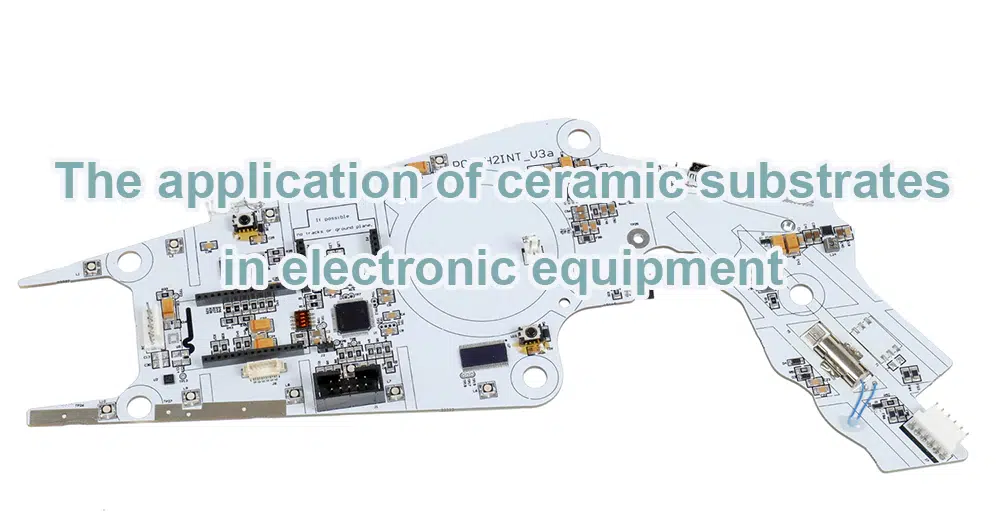
Ceramic substrates have the characteristics of good tensile strength, compressive strength and impact resistance, which are mainly reflected in the following application fields:
1. Electronics industry: ceramic substrates are widely used in the electronics industry, especially high-performance electronic devices and communication equipment. Ceramic substrates have excellent insulation properties, high thermal conductivity and high temperature resistance, and can be used to make high-frequency electronic components, power modules, radio frequency (RF) devices, etc.
2. Power industry: ceramic substrates also have important applications in the power industry. Due to its good electrical insulation performance and high temperature resistance, ceramic substrates are often used to make high-voltage electrical appliances, insulators, porcelain sleeves and insulation support structures.
3. Optoelectronic industry: ceramic substrates are also used in the optoelectronic industry. Due to its high temperature stability and corrosion resistance, ceramic substrates are often used to make LED devices, photoelectric connectors, optical fiber communication devices, etc.
4. Medical field: ceramic substrates are widely used in the medical field. Ceramic substrates have good biocompatibility and chemical stability, and can be used to make biomedical sensors, artificial organs, medical equipment, etc.
5. Military and aerospace fields: ceramic substrates are widely used in military and aerospace fields. Due to its high strength, radiation resistance and high temperature resistance, ceramic substrates are commonly used in the production of missile control systems, satellite communication equipment, radar and protective equipment.
Conclusion
In summary, ceramic substrates play an important role in electronics, power, optoelectronics, medical, military and aerospace industries and applications due to their excellent tensile strength, compressive strength and impact resistance.

